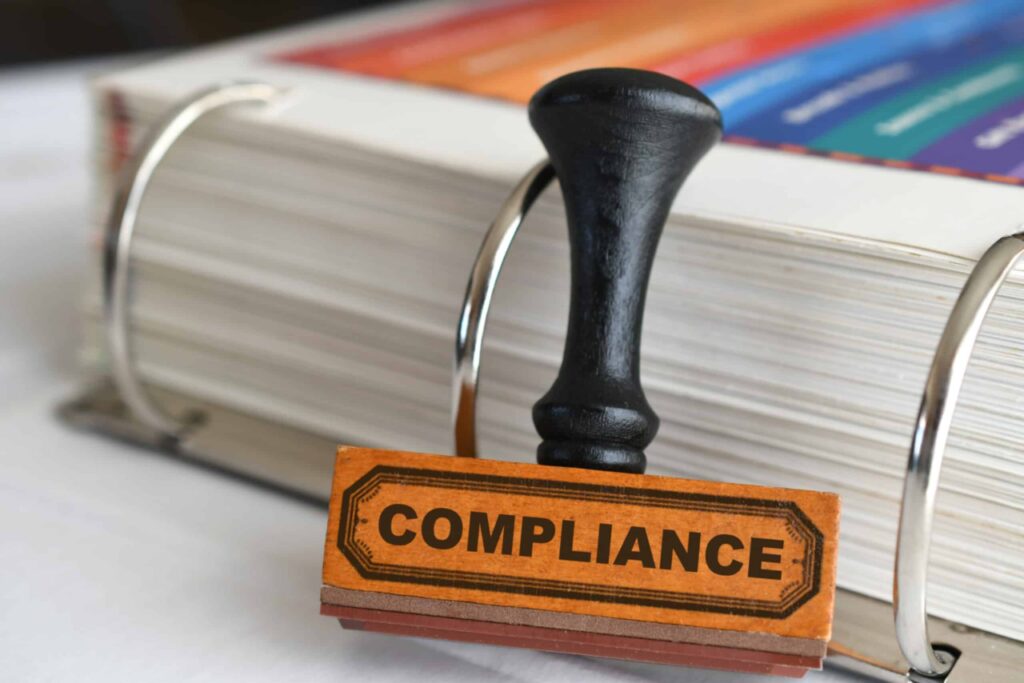It’s no secret that cyberattacks and data breaches are becoming more and more common. Companies are desperately looking for any way they can proactively protect themselves, their employees, and their clients. IT compliance is one of the most important components to protecting your business.
But how can you make sure you are in compliance? Which regulations apply to your business?
Why Is IT Compliance an Important Part of Business?
Nearly every industry and organization is subject to some form of regulation or compliance standards. IT compliance standards are a set of regulatory requirements that organizations must meet to protect their IT systems and data. These regulations ensure that businesses have adequate IT security measures in place to comply with industry-specific obligations, as well as federal and state laws.
Without proper IT compliance, we raise the risk of losing customer trust, costly litigation, exposing private data, and even financial devastation.
The Relationship between Cybersecurity and Compliance
IT compliance is not just about doing the bare minimum to meet legal obligations—it’s about having the right cybersecurity controls in place to protect your organization from threats like malware, ransomware, phishing attacks, data breaches, etc. In other words, IT compliance and cybersecurity go hand in hand; they both aim to secure an organization’s networks and data from unauthorized access and malicious attacks.
IT Compliance Standards That Apply to Your Business
There are several IT compliance standards that may apply to your business, such as:
- HIPAA: The Health Insurance Portability and Accountability Act (HIPAA) is a federal law that establishes data security requirements for healthcare-related organizations. Failure to comply with HIPAA regulations could result in a maximum penalty of $25,000 per violation.
- NIST: The National Institute of Standards and Technology Cybersecurity Framework (NIST CSF) provides guidance on how organizations can manage and respond to IT security risks. NIST is a requirement for organizations handling sensitive government data but is a helpful standard for the private sector as well.
- PCI DSS: The Payment Card Industry Data Security Standard (PCI DSS) sets out the requirements for safeguarding customer credit card information. Failure to properly comply with PCI DSS could result in a fine from as little as $5,000 to upwards of $500,000.
- SOX: The Sarbanes-Oxley Act (SOX) requires public companies to have financial recording standards in place. SOX guidelines help deter fraud and financial abuse.
- GLBA: The Gramm-Leach-Bliley Act (GLBA) requires financial institutions to protect customers’ nonpublic, personal information and be transparent about their data sharing practices.
- FERPA: The Family Educational Rights and Privacy Act (FERPA) sets out data privacy requirements for educational institutions.
By understanding which IT compliance standards apply to your business, you can ensure that you are meeting all of the necessary regulations and protecting your organization from potential threats.
Cybersecurity and IT compliance are essential components of any successful business strategy—make sure you take steps to ensure that your organization is compliant with the applicable IT compliance standards.
Overwhelmed by Compliance? Work with Tech Rockstars!
The key to successful compliance management is your managed service provider. An MSP has the expertise and resources to ensure your company is always within government and industry guidelines, protecting your customers and your future.
Tech Rockstars offers IT compliance services designed to help your organization meet the necessary IT security regulations with adequate IT controls in place. Schedule a meeting with us today and see how we can help!


